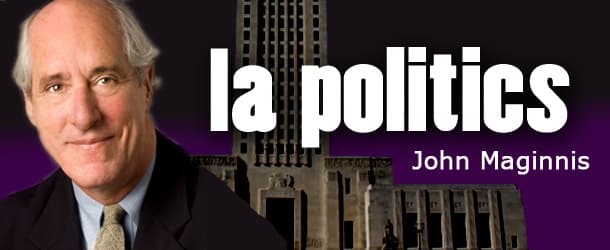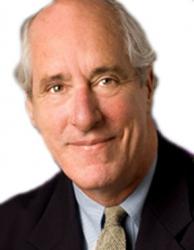In the 1983 governor’s race, before there were limits on political contributions, Louis Roussel, Jr., the oil tycoon, banker and racetrack owner, gave $100,000 to Edwin Edwards’ campaign. Government reformers of the day cited the out-sized donation as the kind of wretched excess that should be banned. So Edwards’ successor, Gov. Buddy Roemer got the Legislature to put a $5,000 cap on individual contributions to statewide candidates.
More than 30 years later, the organizer of the SuperPAC supporting U.S. Sen. David Vitter argues that even a $100,000 limit is too great an infringement on the free speech of its contributors, and that no limits should apply. In that Vitter built a career in opposition to all that Edwards stood for, Mr. Louie would be impressed with the senator’s dexterity.
What happened in between was the U.S. Supreme Court ruling in the 2010 Citizens United case that corporations and unions can spend unlimited amounts to convince voters to elect or defeat candidates. They still cannot give to federal candidates directly, and can still only give $5,000 to candidates in Louisiana. But they can give all they want to independent expenditure committees, such as the Fund for Louisiana’s Future, formed to back Vitter for governor or U.S. senator.
State law puts a $100,000 cap on contributions to those SuperPACs. But FLF organizer, Washington, D.C., attorney Charlie Spies, insists that it’s unconstitutional and asked the state Board of Ethics to remove the cap. The board demurred, but Spies predicts someone in Louisiana will soon challenge the law in federal court, as has been done successfully in other states.
It seems all but inevitable that the SuperPACs and so-called issue advocacy groups, which played such major roles in the 2010 and 2012 federal elections, are about to do a cannonball into the pool of Louisiana politics.
They have started already, with the ceaseless onslaught of TV ads against U.S. Sen. Mary Landrieu for her support of the Affordable Care Act that are being run by Americans for Prosperity, a political advocacy group controlled by billionaire industrialists David and Charles Koch. National Democrats are responding in kind, if not degree, through the Senate Majority PAC’s ads attacking Senate challenger Congressman Bill Cassidy, R-Baton Rouge.
SuperPACs, such as the Fund for Louisiana’s Future, which can directly support the election or defeat of candidates, are different from so-called 501(c)(4)groups like Americans for Prosperity, which must stick to issue advocacy. But the distinction is lost on targets like Landrieu, as well as on TV viewers watching the mud fly.
By whatever definition, the next move of the big-money groups will be toward campaigns for state offices, with the Fund for Louisiana’s Future leading the way in Vitter’s run for governor. The FLF has already raised $1.5 million, under the constraints of the $100,000 limit on donors, and who knows how much it will rake in if the cap is removed?
The only recourse for Vitter’s potential rivals is for supporters to form their own SuperPACs, though they would be hard-pressed to compete with the national base of the group supporting a sitting U.S. senator.
The only operating rule these PACs have to observe is not to coordinate or communicate with the campaigns of the candidates they support. That’s easy enough, for the accepted role of these groups is to relentlessly attack the opposition, allowing the candidate to take the high road.
When it comes to issues advocacy, even the state Legislature will not be immune from the influence of national groups like Americans for Prosperity. AFP has formed a Louisiana chapter to lobby for and against bills in the upcoming legislative session, chief among them is the renewed effort to get the state to accept the optional expansion of Medicaid.
“We’re gonna be there fighting tooth and nail against it,” AFP state director Philip Joffrion told LaPolitics. Medicaid expansion, he said, will be a “key vote” on the group’s legislative scorecard. Legislators who vote for it can expect to hear from the Koch brothers come election time.
Compared to committees without limits, citizens writing $2,500 checks to legislators might feel like their offerings are chump change. The way things are going, the once hard-fought-for reforms by Congress and the Legislature, though nominally in place, will be rendered irrelevant by the high court’s interpretation of free speech without fair play.















Comments are closed.